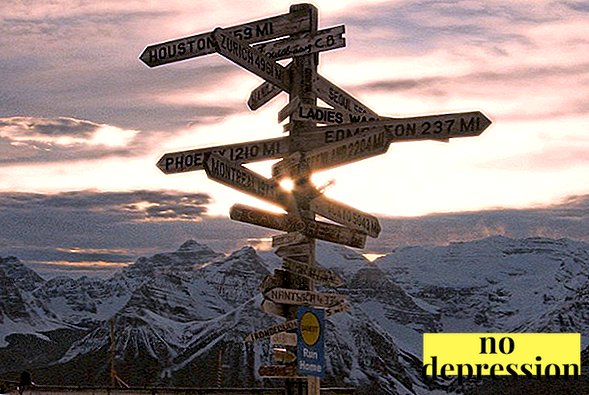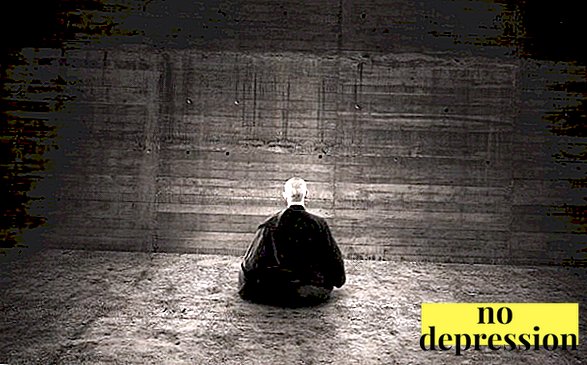Throughout his life, a person is in the process active interaction with other members of society.
Over time, change teams, close environment and the list of friends of each individual.
Therefore, there is a continuous socialization that allows to adapt to new conditions.
The concept and essence

What is called socialization of personality? What does the process of socialization mean? Who introduced this concept?
Socialization - This is a process during which an individual joins a society, learns, learns social values, norms, attitudes, roles, and behaviors adopted in a particular society.
The author of the concept is an American sociologist. F.G. Giddings.
Thanks to socialization, a person becomes a full-fledged member of the society to which he belongs.
The essence of the natural and continuous process is to familiarize the individual with the moral, individual and even physical ideals that are advocated by others.
Then the individual learns these norms and the need to comply with them, comes into contact with people, guided by the acquired knowledge. The process of socialization excludes isolation of the individual.
Views and examples
Science identifies several types of socialization:
- Primary. It acts as a basis for the further process of socialization and proceeds from the moment of birth until the formation of the personality. The child adopts from the parents the opinion, assessment and attitude to certain phenomena in society, which will later become a basic setting for him.
- Resocialization (secondary). During the re-socialization of the individual replaces the previously learned patterns of behavior and reactions to new models. This process lasts all life and starts immediately after the initial socialization is completed. Changes in beliefs can be insignificant, but they can also be radical (if a person changes his system of values under the influence of external factors or by self-processing and evaluating incoming information).
- Group socialization. This is socialization within the group in which the individual is.
Example: Teens, spending a lot of time with classmates, adopt mostly the norms and values that are accepted within a group of classmates.
At the same time, parents (who spend less time with their child than their peers) have less influence on the socialization of a teenager.
- Sexual socialization. A process in which representatives of the male and female sex adopt and assimilate patterns of behavior, knowledge and skills on a gender basis.
- Labor socialization. After a person gets a job or changes his place of work / field of activity, there is an adaptation in two directions (professional and collective). Professional adaptation consists in acquiring new qualities and character traits necessary for successful work.
- Early socialization. This is socialization from the perspective of a hypothetical assessment. Those. a person rehearses a social role, which is not inherent in him at the moment.
Example: If parents actively belittle and criticize any social group, the child will continue to perceive the infringement of this group as a normal and natural phenomenon.

Example: If a person was born and lived for a long time in one country and then moved to another country for permanent residence, behavior and attitudes will be adapted due to close contact with people of a different mentality.
Example: Girls learn to be feminine and watch their appearance, while boys do not show their feelings (do not cry) and try to prove an advantage on the basis of strength.

Example: If a person has been working in a team for a long time, where employees actively discuss working moments, and the work itself required perseverance, then it developed corresponding habits.
When the same individual is promoted and gets into the team, where colleagues behave very secretively (to be afraid of competition), and work requires mobility, labor socialization will occur under new conditions.
Example: Children play in the "family", trying on the roles of wife and husband.
What is different from education?
The concept of socialization and education is very close, because affect the formation of personality. But if upbringing is a controlled and directed process, then socialization has a spontaneous nature.
The differences are summarized in the table:
Upbringing | Socialization |
Two actors are involved in the process (a specific educator and one who is brought up) | The process involves two parties (people and society), but the subject is only a person |
The process is focused and artificially controlled. | The process is spontaneous and uncontrollable by |
The process is intermittent and occurs only at the moment of contact with the teacher | The process is continuous. |
Man as an object and subject
The man acts as the object of socializationas it is exposed to society. The individual absorbs social attitudes and values in the process of interacting with significant people.
Society, in turn, seeks to turn people into “standard” and “normal” representatives of society and is actively working on it.
However, one can be considered a person and how subject of socialization. After all, the individual is not just a passive observer. During the adaptation process, he performs certain tasks, showing activity and subjectivity:
- natural and cultural tasks;
- socio-cultural tasks;
- socio-psychological tasks.
What is the process of socialization?
Socialization implies human integration. But this process, when examined in detail, is very complex and multifaceted, despite its spontaneity.
Personality formation
Socialization, if we consider it as a prerequisite for the formation of a personality, is a contradictory phenomenon, since can be interpreted differently:
- Assimilation of external norms, methods of interaction and behavioral models (developed in this society), in order to then turn these imposed attitudes into personal ones. Submission to external influence is voluntary, and the individual adopts the norms intuitively, often without resorting to analysis.
- The desire of members of society to prove their status and raise their self-esteem, with the result that every single person brings his actions to the accepted norms, wanting to meet the expectations of others.
Thanks to this mechanism, socialization takes place.

Components
The process of socialization includes:
- Elemental socialization. The individual falls under the influence of life circumstances and his environment, society as a whole, due to which socialization takes place that is suitable for this particular environment.
- Directed socialization. The state apparatus develops and adopts measures, laws and regulations for solving large-scale tasks, as a result of which a person undergoes socialization according to a predetermined scenario (army, kindergartens, institutes, schools, etc.).
- Socially controlled socialization. Society and the state apparatus deliberately create the conditions for socialization (economic, legal, spiritual, organizational, etc.).
- Self-modification of the individual. The person is working on self-improvement or self-destruction, despite external factors or on the basis of these external factors.
Stages, stages, periods, levels and phases

As the main stages of socialization distinguish primary and secondary adaptation.
But there are more detailed classificationbased on age criteria:
- childhood (during this period the personality is formed by 70% and a certain basis is laid);
- adolescence (at this age, many changes occur in the body, puberty begins and the individual can take responsibility for most of his own actions and decisions);
- early maturity (at the age of 16, a turning point comes when a person reaches mature age and gets the opportunity to independently choose the society in which he will stay);
- older age (a person gets professional, sexual experience, as well as the experience of friendship, enmity, relationships, to master the mechanisms of interaction with members of society, and then send the forces to self-realization in any area).
Stages of socialization:
- The stage of imitating adults and copying their behavior.
- The stage of the game, when children try on certain roles based on their own ideas about these roles.
- A stage of group games when several people take part in role plays.
Levels of socialization:
- Biological (human connection with the environment and exposure to this environment).
- Psychological (internal development, manifested in the form of self-realization; external development, manifested in the transformative impact on the world).
- Socio-pedagogical level (the individual is looking for social roles, and society dictates prescriptions).
Phases of socialization:
- Adaptation individual (adaptation to society and the rejection of individuality).
- Personalization individual (a person seeks to influence others, to take a strong position in society).
- Integration individual (a person does not dissolve in society, but at the same time can already successfully interact with others according to learned behavior strategies).
Result

How does the socialization process end?
Socialization cannot be viewed as a process that implies completion.
At one stage or another, the integration of man into society leads to the formation of new installations, the destruction of old.
At the same time, the actual value system formed by an individual to any stage of adaptation can be called temporary.
Conditions
Factors or conditions of socialization are divided into separate groups based on how extensive the influence of these factors are:
- mega-factors (space, world, earth);
- macro factors (state, society, nation, etc.);
- mesofactors (subculture, place and type of settlement, etc.);
- microfactors (family, friends, close circle, colleagues, various organizations);
Facilities
The means of socialization are individual for each individual society and group.
These methods include ways of feeding the child, domestic skills, spiritual culture and popular movements grafted in the family, common themes for communication and methods of communication.
Goals and Functions

The main goal of socialization is it is the assimilation of norms and rules by a person, which allow them to successfully integrate into society and interact with other people, to maintain productive contact.
Functions:
- regulatory and regulatory;
- personality-transformative;
- value-orientation;
- information and communication;
- creative;
- the function of reproduction or procreation;
- compensatory.
If at least one of the functions was not fulfilled, socialization cannot be considered successful, because the situation may shift to the side of desocialization or resocialization.
Mechanisms
There are several socialization mechanisms that have a socio-psychological structure.
- Identification. A person realizes himself through belonging to a particular group / genus, thanks to which he adopts forms of behavior and norms of relations.
- Imitation. Copying other people's patterns of behavior, manners, actions, and even movements at a conscious or unconscious level.
- Suggestion. The perception of information in its pure form, without concomitant analysis and criticism, in order to further reproduce the resulting installations and transfer them to your life.
- Facilitation. Stimulation of the activities of some people, due to the controlled behavior of other people.
- Conformance. Manifestation of humility in terms of socially approved patterns of behavior, but an internal and conscious disagreement with the opinions of others.
Traditional mechanism

There are other mechanisms of socialization (traditional, institutional, stylized, interpersonal, reflexive).
The most common and comfortable mechanism is traditional mechanism.
Its essence lies in the child's assimilation of the types of behavior, ideals, attitudes and norms inherent in the family and close environment of the individual.
Such assimilation occurs unconsciously, on the basis of blind faith in the dominant stereotypes.
Factors
Socialization factors - these are the conditions under which the process of socialization takes place. They directly affect the formation of personality. Among the main factors are the family, educational institutions, place of residence (street), media, Internet, public associations and organizations.
Microfactors influence a person through “agents”. Agents are all those members of society who surround the individual and have contact with him throughout his life.
In childhood, these are parents and friends, at a more mature age, fellow students, colleagues and spouse (a). After the birth of offspring, his own children also become agents of socialization for the individual.
Macro factors affect large groups and people and shape public awareness. In the modern world, modern circumstances have also been added to traditional macro factors (environmental and demographic problems, proliferation of nuclear weapons, political instability, etc.).
Spontaneous
To summarize, the state can be put forward as the main factor of spontaneous socialization. With more detailed consideration you can isolate individual components:
- ideology;
- politics;
- economic situation.

Together, these factors form living conditions therefore, they lay down certain beliefs and prejudices among citizens living in these conditions.
Dominant socialization factors are family and educational institutions (institutions).
Spheres
Socialization of the individual can occur in three areas:
- activity;
- communication;
- self-awareness.
These areas are united by the fact that in each of them a person follows the path of expanding external relations.
Central The sphere of personality is self-awareness, which allows you to independently regulate actions.
Theories
Theory | Scientist | Idea |
Theory of personal development | Charles Coulee George Herbert Mead | "Mirror reflection" or self-perception through ideas about the value judgments of others |
Psychoanalytic theories | Sigmund Freud Eric Erickson | Personality develops in stages, approaching puberty. Each stage is associated with overcoming crisis conditions. |
Theory of the Development of Knowledge | Jean piaget | Personality develops gradually during the stages. At each stage, a new cognitive skill is developed. |
Moral theory | Lawrence colberg | Moral development occurs through stages, each of which involves mastering new cognitive abilities and the skill of understanding the feelings of others. |
According to Freud

The theory of the personality of S. Freud assumes the presence of a person three personal states (It, I, super-I).
Id "It" - This is the energy that encourages a person to receive pleasure.
Ego, "I" acts as a controller who, guided by reality, allows a person to regulate id. Superego, "I" - is the parent within man.
That part of consciousness that assesses behavior and seeks to bring it to the standard set by parents.
Freud also highlights 4 stages of sexual development:
- oral;
- anal;
- phallic;
- genital.
At each stage there is a conflict between the prohibitions established by parents. And then the conflict arises already with the Superego, which plays the role of a parent. At the junction of these contradictions, socialization occurs.
Problems
Socialization problems arise when a person deviates from the generally accepted rules and regulations in view of own critical conclusions. But the problem may be based on the isolation of the individual from the society.
Disrupted socialization is an imbalance between subjective and objective reality.
Violations can occur for the following reasons.:
- agent heterogeneity;
- translation by significant members of society of opposing social concepts;
- conflict between primary and secondary stage.
A large role in the process of socialization is played by the activity of a person who must give the incoming information to criticism and evaluation. In this case the process will be successful at each of the stages.
You can learn about socialization from the video:



